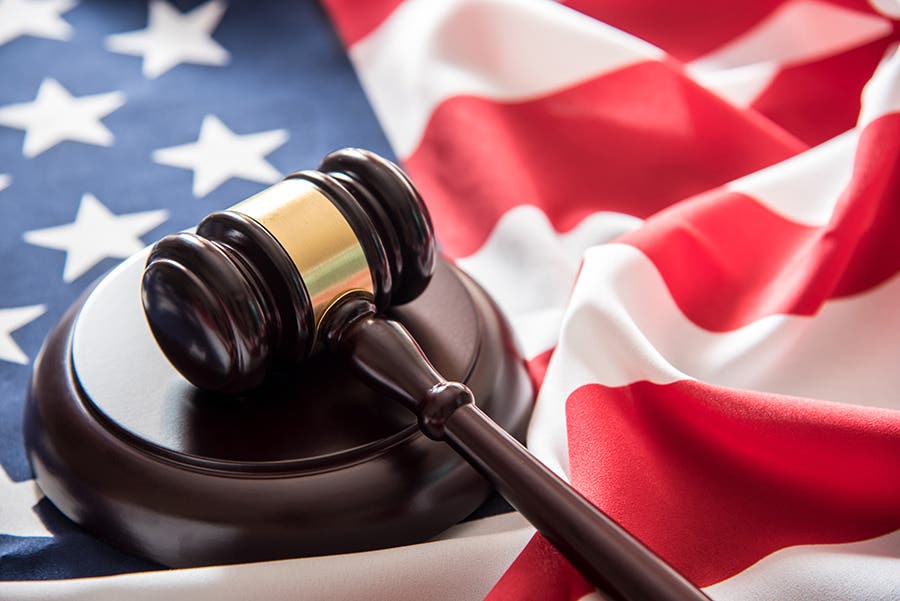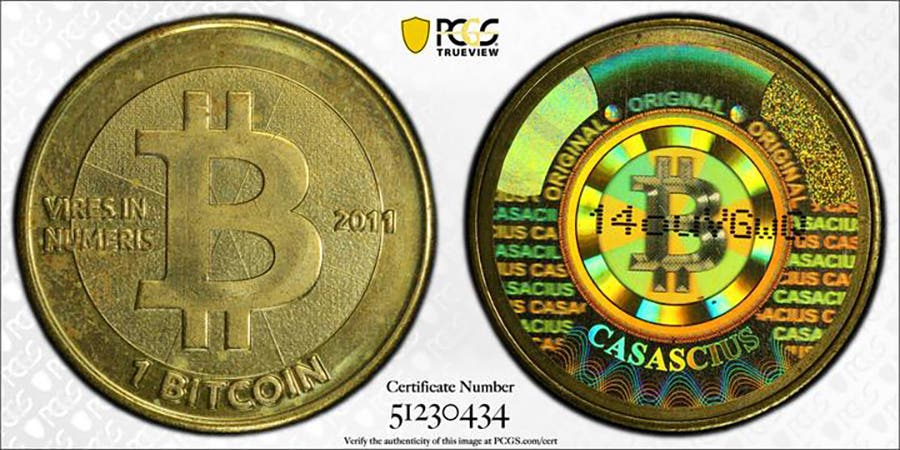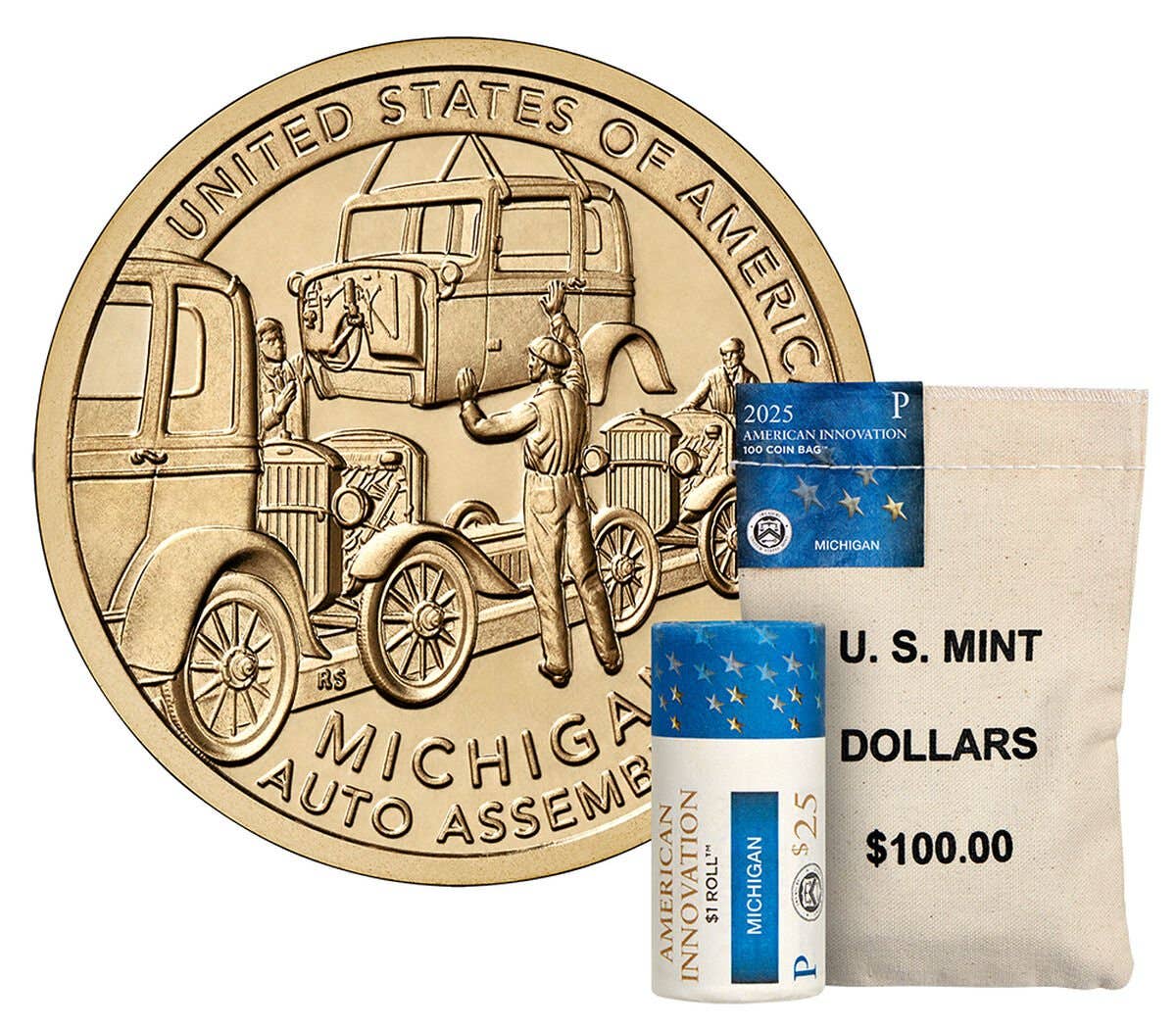Developments in Coin, Bullion Sales Tax Exemptions
Over the past few years, state government budgets suffered by finally having to more accurately disclose the unfunded liabilities and current costs for employee pensions and retiree health care. The…
Over the past few years, state government budgets suffered by finally having to more accurately disclose the unfunded liabilities and current costs for employee pensions and retiree health care. The fiscal problems grew worse last year from the loss of tax collections because of the economic lockdowns imposed by state governments.
As a result, state governments across the country are scrambling to find new ways to increase tax collections. Among the avenues being pursued are to more aggressively force out-of-state sellers to a state’s residents to charge, collect and remit sales and use taxes, to raise tax rates, to increase fees, and to eliminate some existing sales and use tax exemptions.
There are currently five states (Alaska, Delaware, Montana, New Hampshire and Oregon) that impose no sales taxes at all. There are another 34 states that have complete or partial sales and use tax exemptions on the retail sales of coins and precious metals bullion.
In a 2016 national survey, the Industry Council for Tangible Assets (ICTA) confirmed that coin and precious metals bullion dealers did far more business in states with these sales and use tax exemptions than dealers in states without such exemptions. The number of dealerships also increased. Because of far higher average sales volumes in states with exemptions, per capita industry employment was significantly higher. States with sales and use tax exemptions also enjoyed greater attendance at numismatic trades shows.
As a consequence, this survey demonstrated the following:
Dealers in states with complete or partial sales and use tax exemptions on retail sales of coins and precious metals bullion had far higher sales of other merchandise (such as jewelry, antiques, other collectibles and hobby supplies) still subject to sales tax. The increase in these sales tax collections, on average, replaced about 2/3 of the sales and use tax collections lost because of the exemption.
With higher industry employment, payrolls increased. The Michigan Treasury back in the 1990s calculated that 38.5 percent of Michigan payrolls were spent on merchandise on which Michigan sales taxes were collected. The increased collection of sales taxes because of higher employment likely replaced more than 100 percent of the sales and use tax collections lost because of the coin/precious metals bullion exemption.
With greater trade show attendance in states with coin and precious metals bullion sales and use tax exemptions, the hospitality industry (lodging, eating, transportation, and other businesses) see higher sales on which sales taxes are collected.
With higher industry employment, those states that impose individual income taxes also experienced an increase in these tax collections, which may exceed the amount of lost sales and use taxes from the exemptions.
With an increase in the number of businesses, either totally new operations or existing businesses in other niches that added coins and precious metals bullion to their product lines, state governments also experienced an increase in business taxes collected.
When tax laws change, people alter their finances. Unfortunately, politicians and bureaucrats really don’t have a means to do a dynamic analysis of how tax collections might change when taxes are increased or decreased. Instead, they mostly can only calculate how much existing tax collections might be lost from an exemption or might be gained from a tax hike or a new tax. The ICTA survey helped fill the information gap for state legislators, and employees in the treasury, revenue, and fiscal agencies.
Partly as a result of ICTA’s national survey, there were multiple states that have recently established sales and use tax exemptions on the retail sales of coins, precious metals bullion, and even currency.
In 2021, there are potential positive and negative sales and use tax changes in at least twelve states.
Potential Positive Changes
In Arkansas, bills are currently being drafted to continue seeking a sales and use tax exemption on coins, precious metals bullion, and currency. State Senator Mark Johnson will be the sponsor in that chamber, as he has since the effort began in 2019. Representative Delia Haak will be the sponson in her chamber. In 2019, the legislature asked the University of Arkansas to prepare an analysis of the potential legislation. I suspect this occurred because of the huge disparity between an Arkansas dealer survey that reported that coin and precious metals bullion sales in that state resulted in less than $200,000 in sales tax collections in 2018 and a state fiscal official’s statement that such an exemption could cost the state $25 million in annual tax collections.
In Hawaii, House Bill 1184, sponsored by Representatives Val Okimoto and Dale Kobayashi, passed unanimously out of a hearing of the House Economic Development Committee on Feb. 12. It now goes to the House Finance Committee. This bill, as now amended, would take effect Jan. 1, 2022, with a narrow sales and use tax exemption only for gold and silver bullion coins and bars. Both ICTA and I contributed written testimony in support of last Friday’s committee hearing. ICTA is advocating an expansion of the exemption to cover all legal tender coins and currency
In Mississippi, House Bill 375, sponsored by Representatives Henry B. Zuber III, Brady Williamson, and Steve Hopkins, would exempt bullion-priced coins and bars made of gold, silver, platinum, and palladium from sales and use tax. The bill has been sent to the House Ways and Means Committee. A companion bill HB 376 has also been sent to the same Committee. ICTA has been working with the bill’s sponsors to encourage a broader definition of coins and possibly currency be added to the proposed exemption. In the ICTA 2016 national survey, Mississippi had the fewest coin dealers per capita.
In Ohio, dealers are trying to work with legislators to reinstate that state’s exemption, through the budget process instead of enacting legislation.
In Tennessee, HB514, sponsored by Representative Ron Gant and others, is joined by companion bill SB870 sponsored by Senator John Stevens. It would exempt all coins, currency, and bullion made of gold, silver, platinum, palladium, or other material. It has been assigned to the House Subcommittee on Finance, Ways, and Means. This continues a multi-year effort where I have twice visited Nashville to meet with officials from the fiscal agency. Another bill now in the Tennessee legislature in placeholder form (HB353 and SB279) calls for the state government to establish a precious metals depository, similar to what was done in Texas, where action on these bills is dependent on enactment of the sales and use tax exemption.
Potential Negative Changes
Alabama’s current sales and use tax exemption for coins, precious metals bullion and currency (although Confederate and world coins and currency are not exempt) has a sunset provision where the exemption expires June 1, 2023. ICTA is working with the lobbyist to seek an extension of the exemption’s sunset provision.
In Colorado, the state auditor is conducting a cost/benefit review of the state’s existing coin and precious metals bullion sales tax exemption. Several dealers have been sent surveys to complete. The auditor has also contacted ICTA to solicit information about the 2016 national survey and other data.
In Minnesota, State Senators Lindsey Port and Omar Fateh have introduced SF962 to repeal the state’s current bullion sales and use tax exemption on gold, silver, platinum and palladium bullion bars or rounds (coins do not have a sales tax exemption). This bill has been referred to the Senate Committee on Taxes. A companion bill with the same text, HF854, has been introduced in the House of Representatives and referred to that chamber’s committee on Taxes.
In Nebraska, LB649 was introduced by Senator Michael Flood. This expands the ability of banks in that state to trade and establish accounts for cryptocurrencies. It is not clear that it would have any impact on coin and precious metals bullion dealers in that state. As part of the text, such banks would be able to buy and sell precious metals. This bill comes up for a hearing before the Banking, Commerce and Insurance Committee on February 23. It appears that the bill has significant opposition from the Nebraska Bankers Association and the Nebraska Retail Federation, so prospects of passage are slim.
In Pennsylvania, HB307 would repeal a wide range of sales and use tax exemptions, including that state’s exemption on coins and precious metals bullion. It is sponsored by Representative Russ Diamond and has been referred to the House Finance Committee.
In South Carolina, House Bill 3392 would also repeal a wide number of current sales and use tax exemptions, including that on coins, precious metals bullion and currency. The main sponsor is Representative Thomas E. Pope. It has been assigned to the House Ways and Means Committee.
In the state of Washington, HB1417 has been introduced to refine how that state’s coin and precious metals bullion sales and use tax exemption may affect the states B&O taxation. It may not have a direct impact on the exemption itself. The bill has been referred to the House Finance Committee. The main sponsor is Representative Rob Chase.
As you can see from the above list of proposed changes, the existence or lack of a sales and use tax exemption for coins, precious metals bullion and currency is subject to change whenever the various state legislatures are in session. Dealers, collectors and numismatic organizations in any of the states mentioned above can contact ICTA at icta@ictonline.org for more information and possibly to support efforts by becoming a member.
Full disclosure: I have served as a member of ICTA’s board of directors since 2002. I have been actively involved in promoting coin, precious metals bullion and currency sales and use tax exemptions since 1995. I was one of the main architects of ICTA’s 2016 national dealer survey. However, this column represents my personal views and is not an official ICTA statement.
Patrick A. Heller was honored as a 2019 FUN Numismatic Ambassador. He is also the recipient of the American Numismatic Association 2018 Glenn Smedley Memorial Service Award, 2017 Exemplary Service Award, 2012 Harry Forman National Dealer of the Year Award and 2008 Presidential Award. Over the years, he has also been honored by the Numismatic Literary Guild (including twice in 2020), Professional Numismatists Guild, Industry Council for Tangible Assets and the Michigan State Numismatic Society. He is the communications officer of Liberty Coin Service in Lansing, Mich., and writes Liberty’s Outlook, a monthly newsletter on rare coins and precious metals subjects. Past newsletter issues can be viewed at www.libertycoinservice.com. Some of his radio commentaries titled “Things You ‘Know’ That Just Aren’t So, And Important News You Need To Know” can be heard at 8:45 a.m. Wednesday and Friday mornings on 1320-AM WILS in Lansing (which streams live and becomes part of the audio archives posted at www.1320wils.com).








